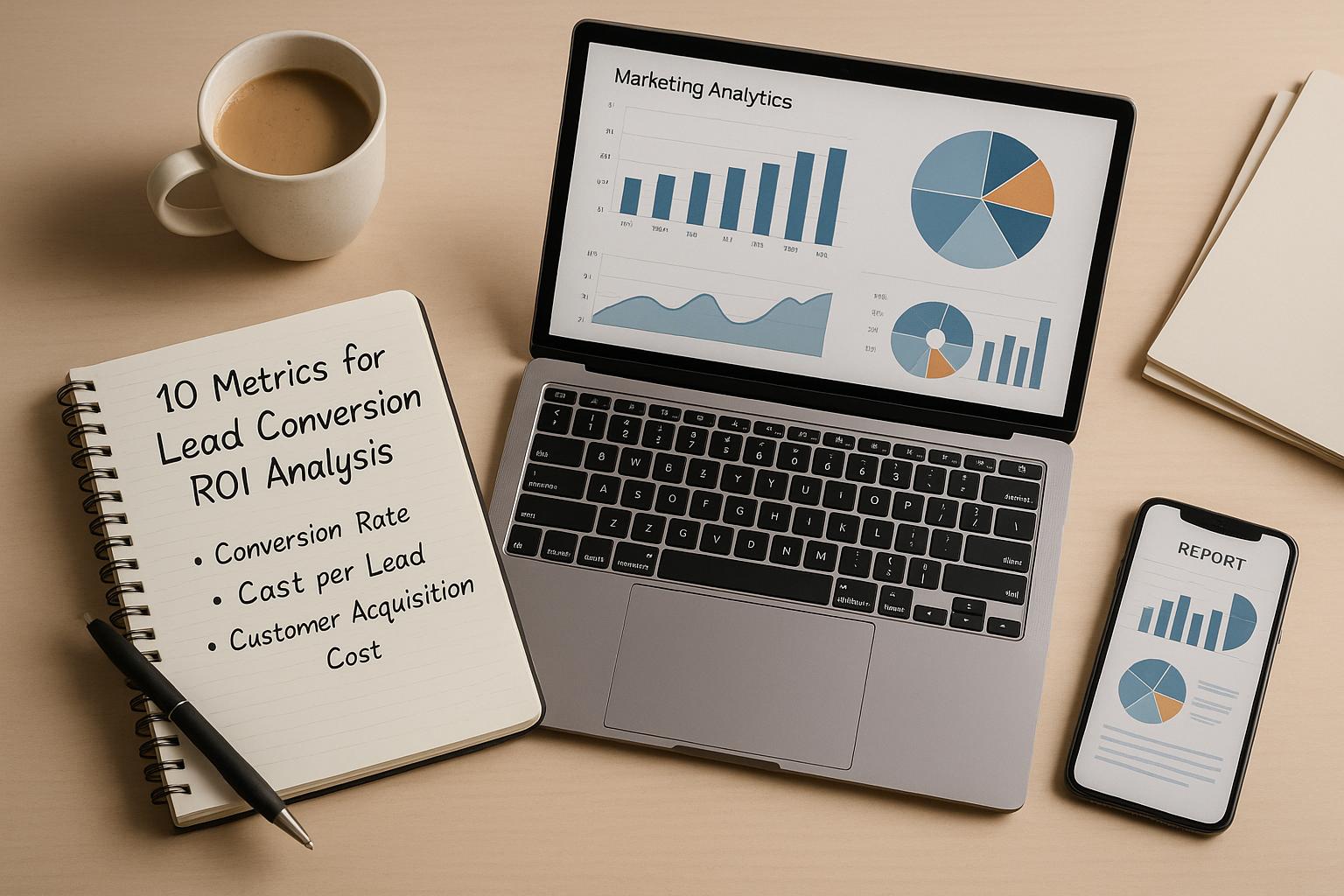If you're running PPC campaigns, finding the right keywords is critical. While Google Keyword Planner is a common tool, it has limitations like broad data ranges and limited insights for advanced strategies. Fortunately, there are several alternatives that offer more detailed metrics, keyword intent analysis, and better targeting options - many of which are free or budget-friendly. Here’s a quick look at five tools to improve your PPC keyword research:
- WordStream Free Keyword Tool: Provides top keyword suggestions, competition levels, CPC estimates, and an Opportunity Score for prioritizing high-ROI keywords. It’s great for beginners but has limited free searches.
- KWFinder by Mangools: Offers precise search volume data, keyword difficulty scores, and detailed geographic insights for local campaigns. Pricing starts at $29.90/month.
- Ubersuggest: A simple, affordable tool for keyword research, competitor analysis, and search trends. Plans start at $49/month, with lifetime options available.
- Search Atlas: Includes advanced features like keyword gap analysis, commercial intent categorization, and AI-powered tools for campaign optimization. Pricing begins at $99/month.
- Optmyzr: Focuses on campaign performance with tools like PPC Investigator and Rule Engine. Ideal for agencies managing large budgets, starting at $299/month.
Quick Comparison
| Tool | Key Features | Pricing | Ideal For |
|---|---|---|---|
| WordStream | Free basic keyword data, CPC insights | Free (limited usage) | Beginners exploring PPC basics |
| KWFinder | Precise data, local targeting | $29.90+/month | SMBs needing detailed insights |
| Ubersuggest | Affordable, user-friendly | $49+/month | Budget-conscious advertisers |
| Search Atlas | Competitive analysis, AI tools | $99+/month | Agencies and advanced marketers |
| Optmyzr | Campaign optimization tools | $299+/month | Agencies managing large budgets |
Each tool caters to different needs - whether you're just starting or managing complex campaigns. Pick one that aligns with your goals and budget.
'Free Keyword Tool' by WordStream (Review) | An Alternative Keyword Research Tool [CC]
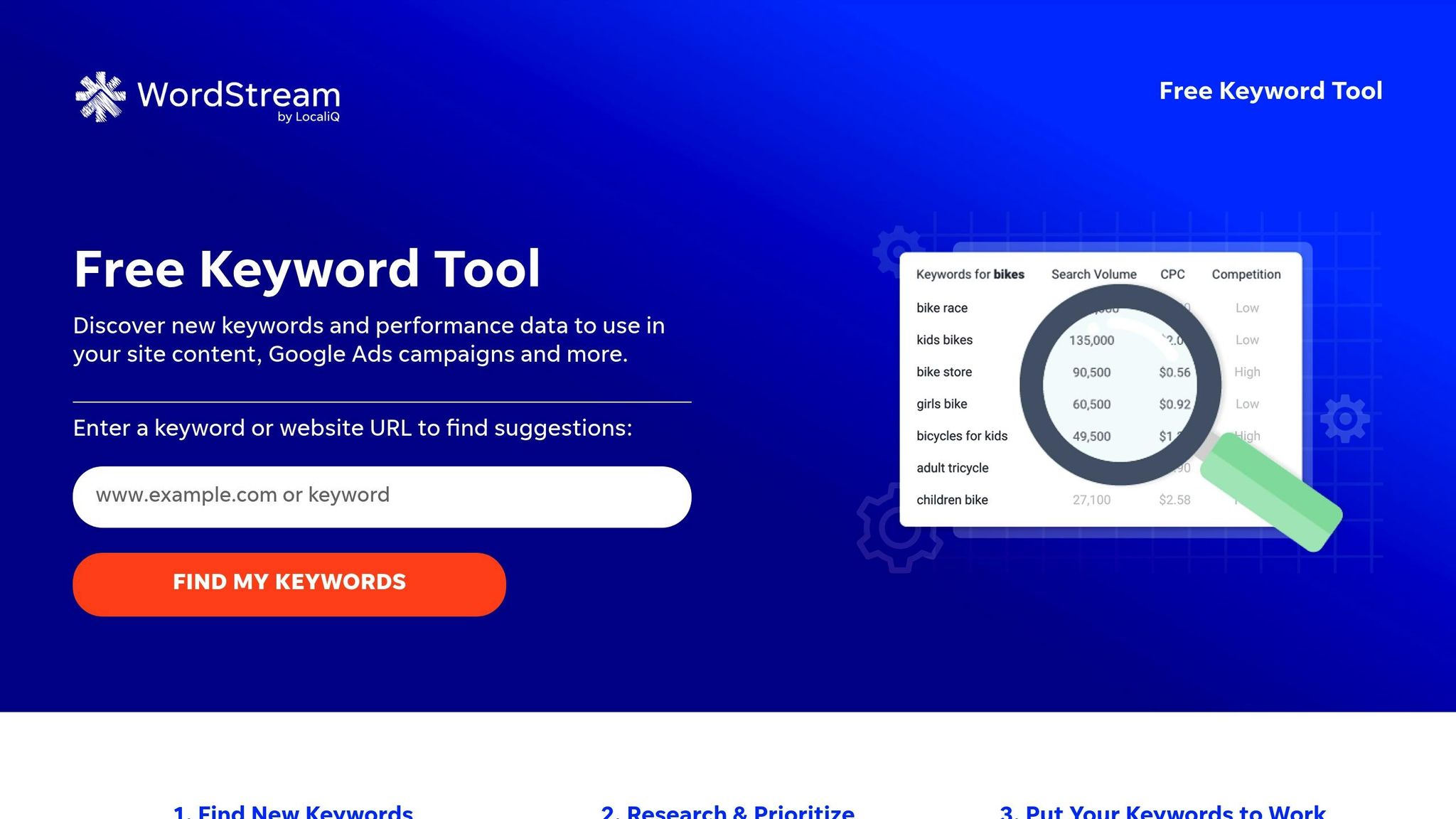
1. WordStream Free Keyword Tool
When it comes to PPC keyword research, WordStream's Free Keyword Tool stands out by pulling data directly from the Google Keyword Research API. This ensures detailed PPC metrics and actionable insights to help you fine-tune your campaigns.
Key Features
This tool delivers the top 25 keywords and their search volumes for any seed keyword or URL. By entering a competitor's URL, you can uncover profitable keywords they might be bidding on.
WordStream provides four essential metrics: average monthly searches, competition level, CPC estimates, and an Opportunity Score (rated 1–10). The Opportunity Score is particularly helpful for prioritizing keywords with higher ROI potential, allowing you to allocate your PPC budget more effectively.
PPC-Specific Metrics
One of the tool's strengths is its ability to provide data tailored to your country and industry. With filters spanning 24 business verticals, you can ensure the competition and CPC data align with your specific market. Plus, you can download keyword lists as CSV files, making it easy to integrate them into Google Ads or Bing Ads accounts.
The tool also identifies expensive keywords to exclude, helping you cut down on wasted ad spend. Its competition and CPC metrics are especially useful for spotting high-volume, low-competition keywords that could yield better ROI. This functionality even extends to regional targeting, offering a more focused approach.
U.S. Market Relevance
For advertisers in the U.S., WordStream offers state-specific targeting. By entering your state name, you can generate keyword results tailored to your region - ideal for local PPC campaigns. While the tool supports geographic filtering in over 23 countries, its ability to drill down to state-level data makes it particularly valuable for American businesses running location-based campaigns.
Keyword Data Accuracy
WordStream also addresses a common shortfall of Google Keyword Planner by providing exact search volumes instead of broad ranges. This level of precision is especially helpful for accounts with lower Google Ads activity, which often display only general volume estimates in Google's tool. For advertisers, this means more accurate data to guide their decisions.
2. KWFinder by Mangools
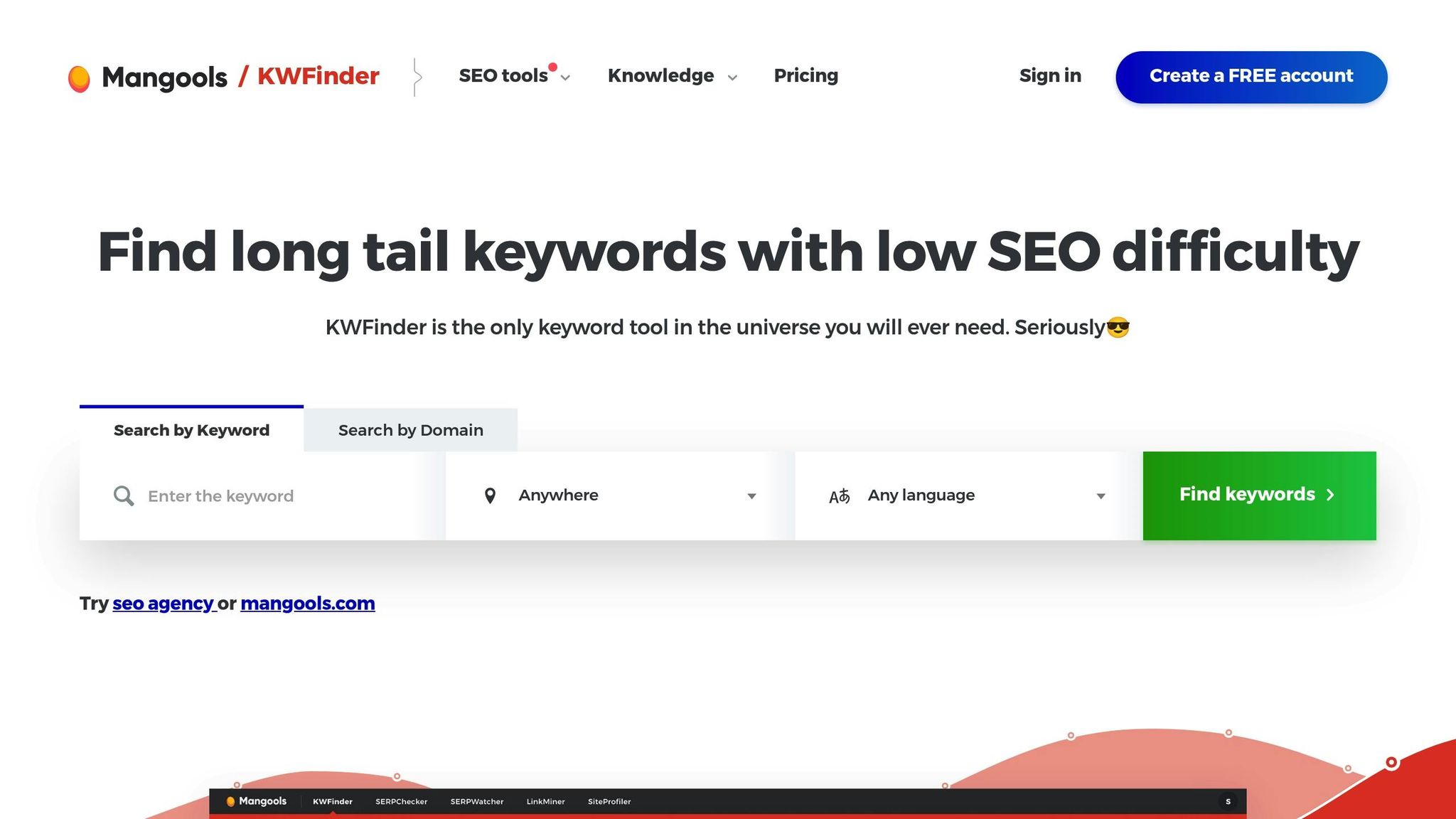
KWFinder by Mangools is a reliable keyword research tool that caters to both beginners and experienced marketers. It’s part of the Mangools suite, which also includes tools like SERPWatcher, LinkMiner, and SiteProfiler, offering a well-rounded set of resources for digital marketing. One of its standout features is its ability to provide accurate search volume data, making it a trusted option for keyword analysis.
Key Features
KWFinder offers three types of keyword suggestions: Related Keywords, Autocomplete, and Questions. These options allow advertisers to approach their campaigns from different perspectives. Whether you’re hunting for competitive keywords or looking for long-tail, question-based searches that often drive conversions, KWFinder has you covered. Its precise search volume data also helps advertisers estimate reach and plan budgets with confidence. This combination of features aligns well with PPC strategies, making it a versatile choice for campaign planning.
PPC-Specific Metrics
For pay-per-click campaigns, KWFinder provides essential data like Cost Per Click (CPC) estimates and a PPC competition score, which indicates the level of paid search competition. The tool also includes historical trend data, helping advertisers identify seasonal patterns and adjust their budgets accordingly. On top of that, KWFinder offers detailed geographic insights, which are particularly useful for tailoring campaigns to specific regions.
U.S. Market Relevance
With support for local keyword research across more than 50,000 locations worldwide, KWFinder is especially effective for geo-targeted campaigns in the United States. Advertisers can narrow their focus to specific cities, counties, or states, enabling them to account for regional differences in search behavior and competition. This level of detail is invaluable for creating targeted and efficient PPC strategies.
Keyword Data Accuracy and Pricing
KWFinder stands out for its accurate search volume data, avoiding the pitfalls of broader, less precise estimates. This precision makes it a go-to tool for businesses of all sizes. Pricing is designed to be accessible, with plans starting at $29.90 per month for the Basic plan (billed annually), $44.90 per month for the Premium plan, and $89.90 per month for the Agency plan. These options make it an affordable choice for small and medium-sized businesses that need high-quality insights without breaking the bank. With its mix of accurate data, PPC-specific metrics, and strong geographic targeting, KWFinder is a valuable asset for advertisers aiming to refine their campaigns in the U.S. market.
3. Ubersuggest
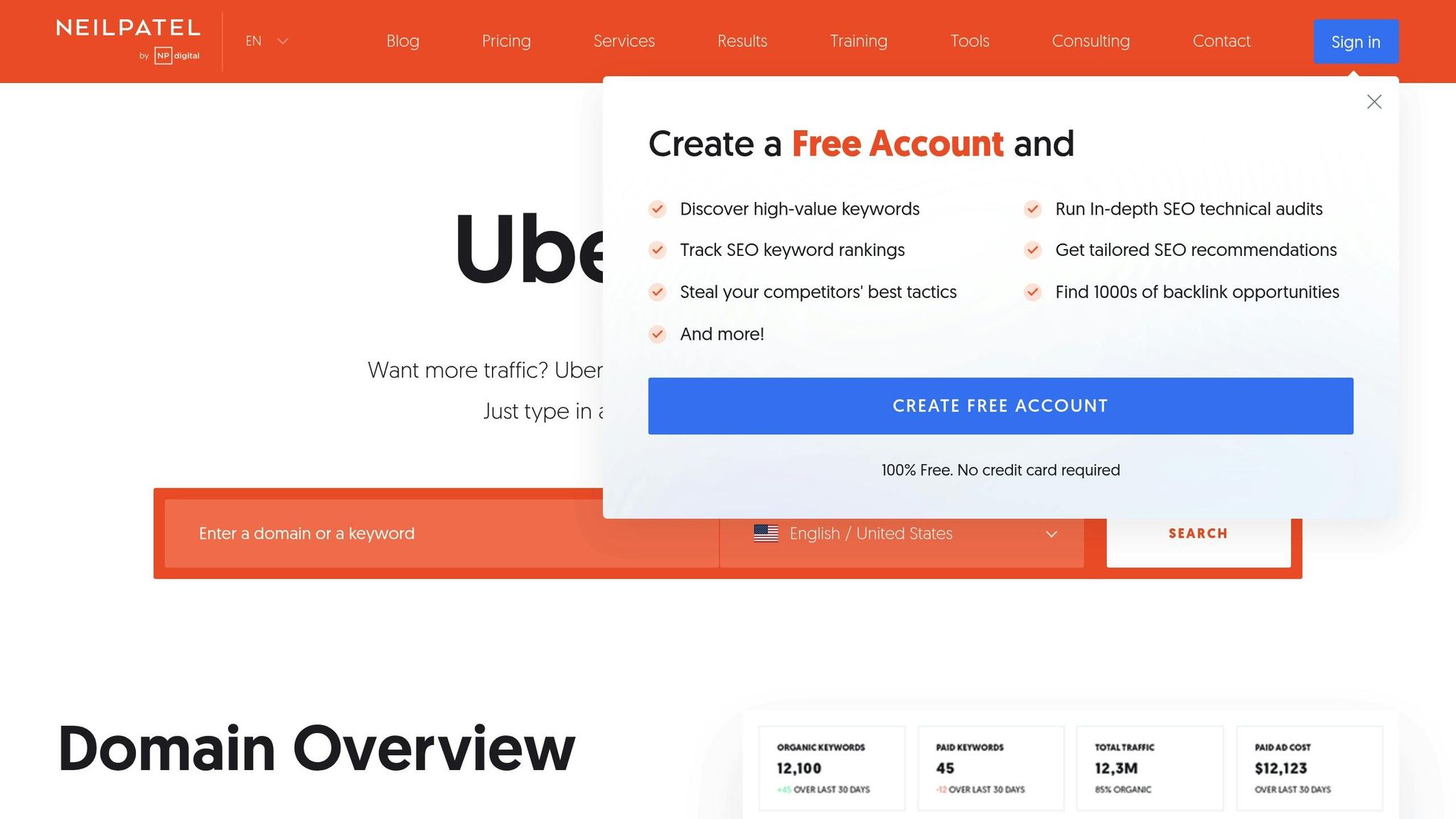
Ubersuggest, created by Neil Patel, stands out for its affordability and simplicity, making it a popular choice for small businesses and beginners. The platform is marketed as a budget-friendly tool, claiming to be about 90% cheaper than competing solutions. While it's user-friendly and a great starting point for those new to PPC and SEO, it might not meet the needs of experienced users seeking advanced features.
Key Features
Ubersuggest provides a range of keyword suggestions that can be fine-tuned to fit specific campaign goals. It helps users uncover keywords their competitors are targeting, brainstorm content ideas, and identify high-ROI opportunities. The tool also delivers both paid and organic difficulty metrics, offering a quick snapshot of competition levels. Beyond keywords, Ubersuggest integrates with Google Keyword Planner and includes features like backlink data and site audits, giving users a basic understanding of website optimization. These capabilities make it a handy tool for crafting PPC campaigns.
PPC-Specific Metrics
When it comes to PPC campaigns, Ubersuggest offers essential metrics such as search volume and keyword difficulty scores. Users can sort keywords by CPC value to pinpoint high-intent terms. Additionally, the tool provides insights into search trends and geographic data, allowing advertisers to identify when and where specific keywords perform best. This level of detail helps businesses allocate their budgets more effectively and target the right markets with precision.
U.S. Market Relevance
For advertisers focusing on the U.S. market, Ubersuggest’s geographic search data is especially useful. It enables analysis of regional search trends and uncovers location-specific opportunities. The tool also includes competitor analysis features, revealing which keywords are driving traffic to rival websites. These insights make it easier to adjust bids and budgets based on regional performance, giving campaigns a strategic edge.
Keyword Data Accuracy
Ubersuggest’s keyword volume estimates, like many tools, can sometimes vary. These figures are derived from multiple data sources, which is a common approach among SEO platforms. While this variability may affect campaign planning, the platform is transparent about the limitations.
"Estimates are generated using numerous data sources. Our data providers are similar to those used by other SEO keyword research tools." - Ubersuggest
Despite these potential discrepancies, Ubersuggest remains an affordable option. Monthly plans range from $49 to $99, and lifetime plans start at $490. For businesses just starting with PPC or working with tight budgets, Ubersuggest offers an accessible way to dive into professional keyword research without breaking the bank.
sbb-itb-89b8f36
4. Search Atlas
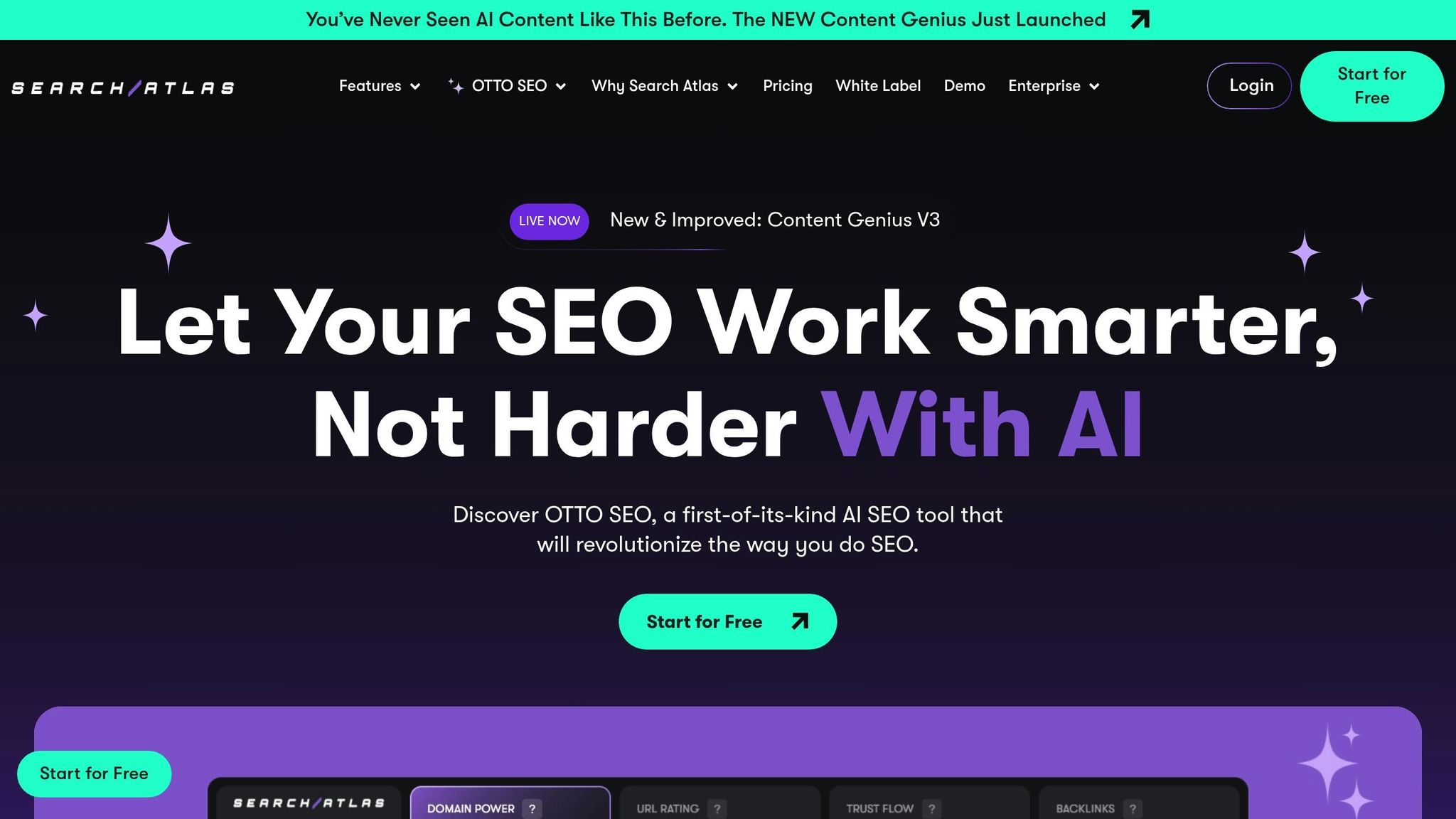
Search Atlas positions itself as an alternative to Google Keyword Planner, blending features similar to Semrush and Ahrefs at a more budget-friendly price. It’s designed for agencies and digital marketers looking for powerful keyword research tools without the hefty price tag.
Key Features
Search Atlas boasts an impressive dataset: 5 billion keywords, 100 trillion backlinks, and 500 million indexed domains. This extensive data supports in-depth keyword research and competitive analysis, making it a valuable tool for marketers.
The platform’s Keyword Magic Tool functions much like Semrush's, helping users discover related keywords, variations, and questions. It’s particularly useful for identifying long-tail keywords for PPC campaigns. Additionally, it provides key PPC metrics such as cost-per-click (CPC), pay-per-click difficulty (PPCD), and indicators of commercial intent.
Another standout feature is the Keyword Gap analysis, which lets users compare their keyword rankings directly against competitors. This insight helps advertisers spot opportunities in the market and refine their bidding strategies. Together, these tools integrate seamlessly to cover all aspects of campaign planning, from keyword discovery to competitor analysis.
Search Atlas also includes OTTO Google Ads, an AI-powered tool that automates keyword clustering, highlights high-performing opportunities, analyzes competitor strategies, and suggests negative keywords. This feature simplifies campaign setup and optimization, saving both time and effort.
PPC-Specific Metrics
The platform delivers critical PPC data, including search volumes, CPC figures, keyword difficulty scores, and intent categorization (informational, transactional, navigational). It also supports regional keyword analysis, allowing advertisers to evaluate performance across specific geographic areas. These capabilities are particularly beneficial for businesses focusing on U.S. regions or running location-based campaigns.
Search Atlas further enhances campaign optimization with tools like negative keyword recommendations and thematic keyword grouping. These features can boost ad relevance, improve quality scores, and help reduce overall advertising costs. For businesses targeting U.S. audiences, these tools provide a solid edge.
U.S. Market Relevance
For campaigns targeting U.S. audiences, Search Atlas offers localized keyword metrics and regional performance insights. Its competitive analysis tools reveal rival strategies within the U.S. market, enabling advertisers to fine-tune their approach. The platform’s ability to analyze commercial intent is particularly useful in the U.S., where understanding a buyer’s readiness to purchase can dramatically impact campaign success.
Keyword Data Accuracy
Search Atlas uses web timestamping to provide more dependable keyword estimates. While this approach may yield lower traffic figures, it’s often more accurate than tools relying heavily on third-party clickstream data, which can deviate by as much as 50%.
That said, discrepancies among keyword tools remain common. For instance, the keyword "SEO books" shows 4,400 monthly searches on Search Atlas, compared to 10,600 on Semrush. On average, research reveals that traffic estimates from popular tools differ around 22.5% from actual Google Search Console data.
Pricing Plans
Search Atlas offers flexible pricing options:
- Starter Plan: $99/month, includes one OTTO SEO project, two user seats, and unlimited keyword rank tracking.
- Growth Plan: $199/month, ideal for agencies managing multiple clients.
- Pro Plan: $399/month, tailored for high-volume agencies with advanced automation needs.
These tiered plans make it accessible for both small teams and larger agencies, ensuring there’s an option for every budget and scale.
5. Optmyzr
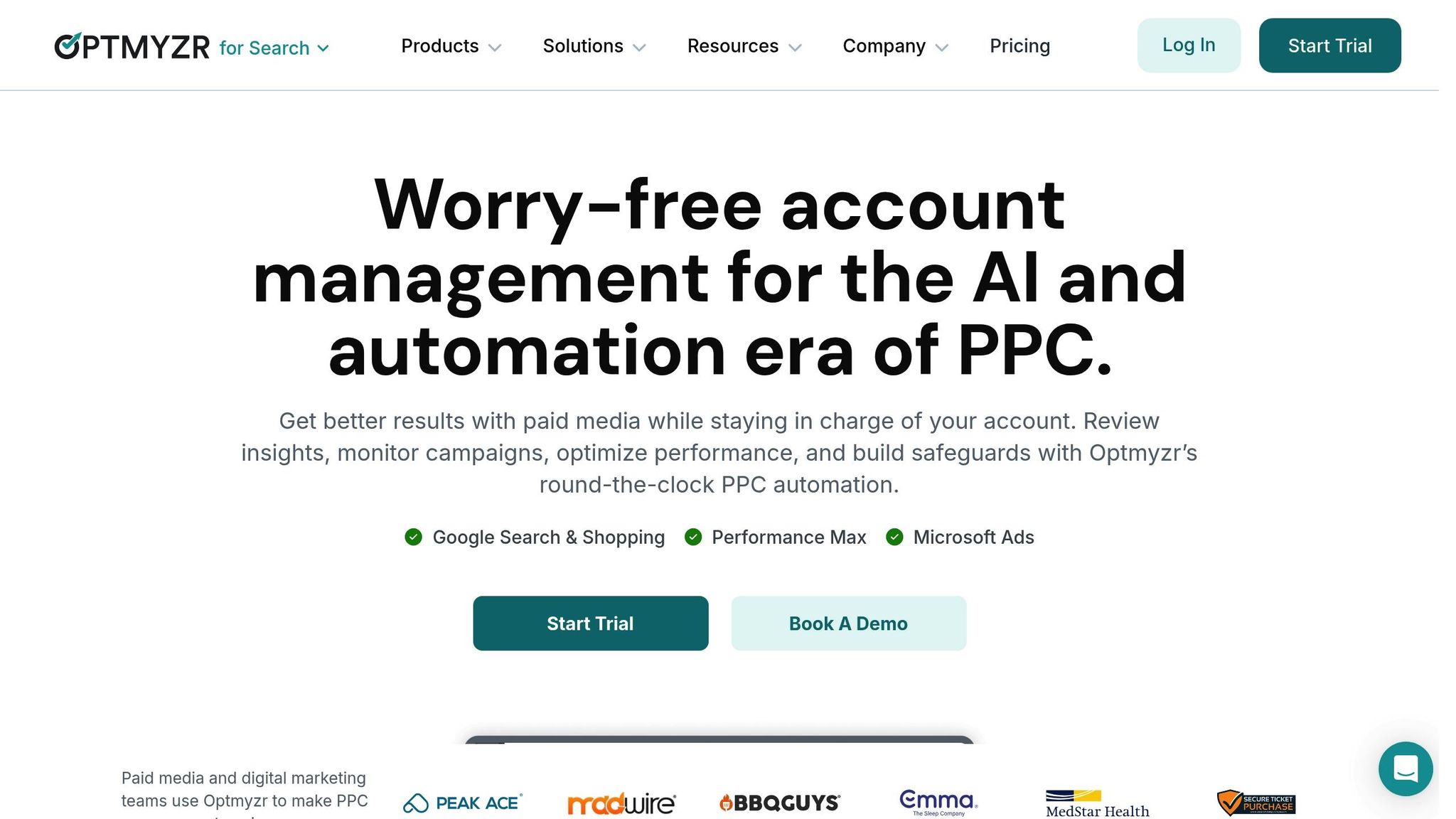
Optmyzr takes PPC management to the next level by not just helping with keyword discovery but also enhancing overall campaign performance. It's a full-fledged platform designed to analyze and optimize every aspect of a campaign, making it a go-to tool for advertisers aiming for efficiency and results.
Key Features
Optmyzr stands out with tools like the PPC Investigator, which identifies performance shifts, and the Root Cause Analysis feature that pinpoints issues in underperforming areas. Its PPC Policy and Audits functionality ensures your account aligns with preset standards, while the PPC Vertical Benchmarks dashboard allows you to measure your performance against industry norms.
With over $5.27 billion in ad spend managed across more than 378,000 accounts, Optmyzr is built to scale for businesses of all sizes. It supports major ad platforms, including Google Ads, Microsoft Ads, Amazon Ads, Meta Ads, and LinkedIn Ads.
PPC-Specific Metrics
What sets Optmyzr apart from traditional keyword tools is its focus on performance optimization metrics. The platform tracks budgets, flags unusual spending patterns, and uses AI-driven projections to help you allocate ad spend more effectively. It also identifies irrelevant keywords, ensuring your campaigns stay efficient. These advanced metrics make it more than just a keyword planner - it’s a tool for comprehensive campaign performance analysis.
"My absolute favorite might be the PPC Investigator, which is usually my go-to when there is a change in performance that I want to dig into for deeper insights!"
– Roger C., Paid Search Manager, Conduit Digital
Optmyzr's Rule Engine is another standout feature, enabling users to create custom optimization strategies and monitoring rules. In 2024, the platform executed over 480 million optimization actions and managed more than 21,851 active automation events across its connected accounts.
U.S. Market Relevance
For businesses targeting U.S. audiences, Optmyzr's performance tracking and optimization tools are particularly valuable. Its ability to assess performance across various industries provides American companies with insights into their competitive landscape. Case studies highlight improvements in metrics like ROAS, revenue, and overall campaign efficiency for U.S.-based advertisers.
Keyword Data Accuracy
While Optmyzr isn’t a traditional keyword research tool, its strength lies in analyzing the performance of existing keywords in active campaigns. By monitoring keywords in real time, it identifies which ones drive conversions and which ones waste budget, offering actionable insights.
"The Optmyzr software gives you a kind of sanity check on whether you should make changes or not...The real value I see in the software is that it tells you what you should change and what you shouldn't, so you're not just randomly making adjustments."
– Corey Zieman, Owner, Guaranteed PPC
With an average rating of 4.7 on G2 and Capterra, and being recognized 10 times as the World's Best PPC Software, Optmyzr has earned its reputation for delivering accurate, actionable data and enhancing campaign performance.
Tool Comparison: Pros and Cons
Here's a quick breakdown of the free tools we discussed earlier, outlining their main advantages, drawbacks, and ideal use cases.
| Tool | Strengths | Weaknesses | Best For |
|---|---|---|---|
| WordStream Free Keyword Tool | Easy-to-use interface; reveals competition levels and estimated CPC; helps identify relevant keywords for SEO and PPC | Limited free searches per day; accessing detailed data requires email submission | Beginners exploring PPC basics |
| Ubersuggest | User-friendly and beginner-oriented; affordable plans starting at $49/month | Advanced features like search intent and volume history are behind a paywall; daily free usage is capped | Marketers on a budget and those just starting out |
| Optmyzr | Goes beyond keyword research with full campaign optimization and PPC performance tools | Higher starting price at $299/month; focuses more on optimization than initial keyword discovery | Agencies and businesses managing larger ad budgets |
Each tool caters to different needs and budgets. WordStream offers basic free functionality, Ubersuggest provides affordable pricing with lifetime options, and Optmyzr delivers advanced optimization features but at a premium price.
For those looking for more sophisticated tools, Optmyzr’s Rule Engine is a standout feature, allowing for custom optimization strategies. However, this level of functionality is better suited for experienced users or businesses with significant advertising investments.
These comparisons should help you identify which tool aligns best with your PPC goals.
Conclusion
Selecting the right keyword research tool for your PPC campaigns boils down to aligning your choice with your goals and budget. Consider this: 57% of PPC specialists conduct keyword research weekly, highlighting just how essential it is for success. While free tools can be a good starting point, they often fall short when it comes to delivering detailed metrics like difficulty scores, search intent, and traffic estimates. This makes them less reliable for campaigns where precision is critical. Decide whether your focus is on PPC-specific features or broader SEO metrics, as some tools are designed to excel in one area over the other.
Challenges with free tools are reflected in industry data: 42% of PPC specialists struggle with limited niche keyword data, 38% receive overly broad suggestions, and 37% face difficulties understanding true search intent. On the flip side, 88% of PPC specialists now incorporate AI tools like ChatGPT into their keyword research process. This growing trend suggests that combining traditional tools with AI-driven insights can help overcome some of the limitations of free platforms.
If you're looking for additional keyword research solutions, the Top PPC Marketing Directory is a great resource. This platform provides access to specialized PPC tools, expert agencies, and services for keyword research, campaign management, bid optimization, and performance tracking. Whether you need advanced keyword research capabilities or want to compare different tools, this directory offers plenty of options to help boost your campaigns.
FAQs
Why might marketers need alternatives to Google Keyword Planner for PPC campaigns?
Google Keyword Planner is a go-to tool for many, but it does come with some drawbacks, especially when it comes to PPC campaigns. For starters, it often falls short in offering detailed insights into long-tail keywords or competitive keyword metrics - both of which are essential for connecting with niche audiences. On top of that, its search volume and cost-per-click (CPC) estimates can sometimes lack the accuracy needed for precise campaign planning.
These limitations can make it tough for marketers to dig deep into keyword research and fine-tune their PPC strategies. To bridge these gaps, it’s worth considering alternative tools that offer more comprehensive data to help elevate campaign performance.
What are the pricing options for the keyword research tools mentioned, and which is the best choice for small businesses?
For small businesses, Google Keyword Planner is a top pick when it comes to budget-friendly tools. It’s completely free and provides access to a wealth of keyword data while integrating smoothly with Google Ads. This makes it a fantastic option for businesses aiming to fine-tune their PPC campaigns without spending extra.
There are other no-cost tools like WordStream and Keyword Surfer that offer useful features. However, they don’t quite match the depth or seamless connection to ad platforms that Google Keyword Planner provides. For small businesses trying to get the most out of their resources, this tool delivers a strong combination of detailed insights and user-friendly functionality.
What are some ways tools like Search Atlas and Optmyzr can improve PPC campaigns beyond keyword research?
Tools such as Search Atlas and Optmyzr can play a key role in taking your PPC campaigns to the next level by offering features that go far beyond simple keyword research.
Search Atlas provides marketers with valuable insights into competitor SEO strategies, backlink profiles, and website performance metrics. With this data, you can make smarter decisions to fine-tune your campaigns and stay ahead of the competition.
On the other hand, Optmyzr streamlines campaign management by automating tasks, offering detailed performance analytics, and optimizing bids across platforms like Google Ads and Microsoft Ads. These tools are designed to help advertisers maximize ROI, save time, and refine their paid marketing strategies using actionable data.
